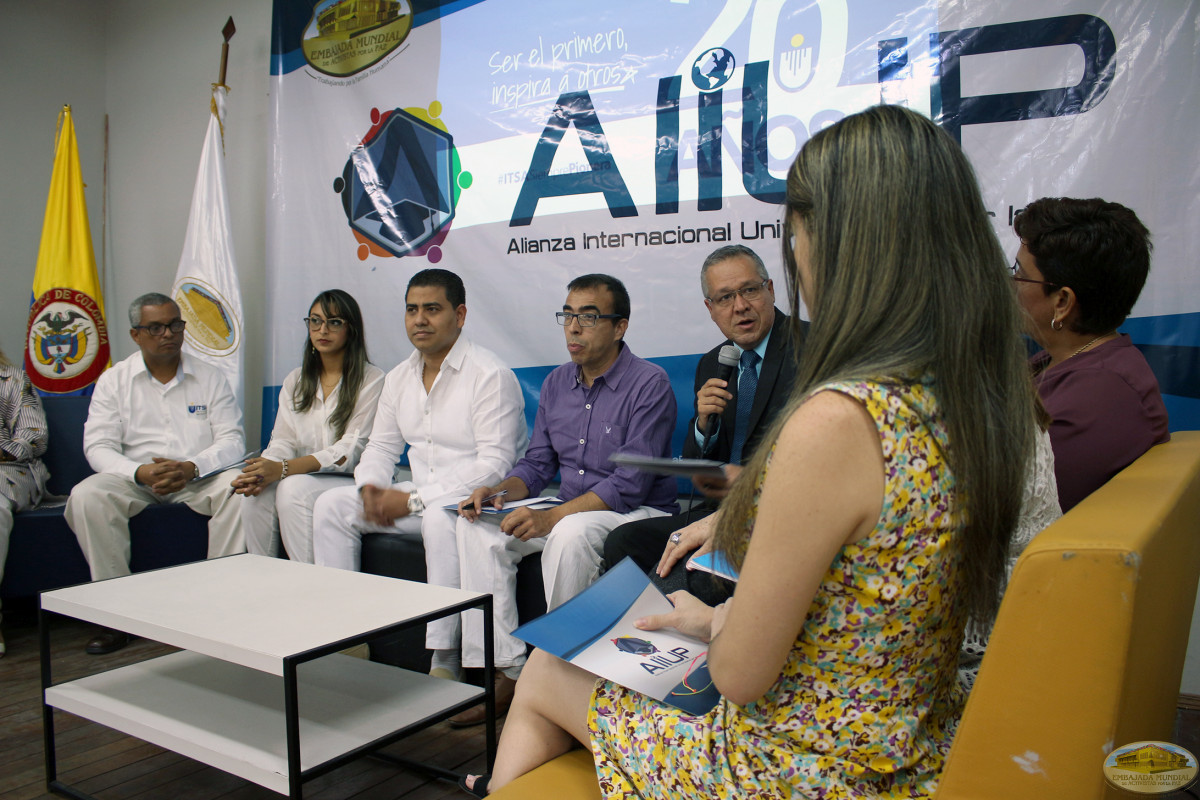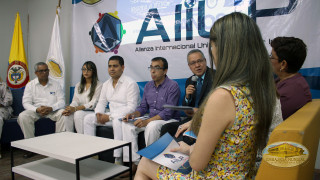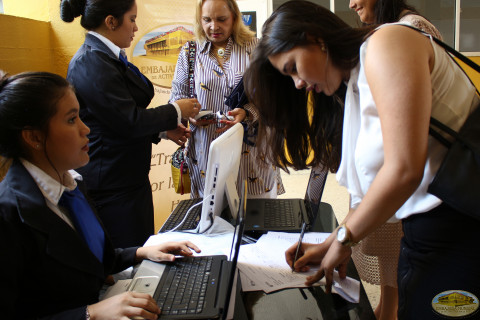
In the main auditorium of the Technological Institute of Soledad Atlántico (ITSA), in Barranquilla, the II Regional Seminar of the International Alliance of Universities for Peace (ALIUP) was held, under the theme: "Higher education as a tool for peace in the post-conflict management in Colombia".
The event was held with the objective of contributing to the management of the Colombian post-conflict through the implementation of proposals presented by academic authorities and university students, promoting the participation of the higher education system in the peace process.
More than 300 people, including professors, teachers and students, attended this academic meeting organized by the Global Embassy of Activists for Peace (GEAP).
The University Institution ITSA, the University Corporation of the Coast (CUC), the Antonio Nariño University, the Universidad del Atlántico, the Rafael Núñez University Corporation, the Simón Bolívar University and the Latin American University Corporation participated.
In the seminar, the proposals and projects presented focused on the construction of a culture of peace through a quality integral education oriented to the development of professional competences, based on values, and on the promotion, defense and practice of human rights.
For a culture of peace
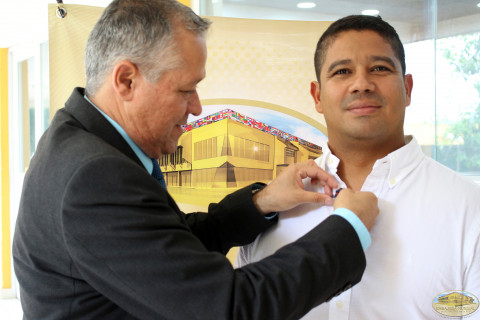
The event began with awarding a recognition to the ITSA by the agreement established with the ALIUP. Rector Emilio Zapata stressed the importance of adopting a culture of peace that llows for greater development.
Juan Carlos García, national coordinator of the ALIUP, presented the objectives of this project. He mentioned that in the First Regional Seminar held in Medellin, they signed an agreement with the ALIUP, the Government of Antioquia, the Universidad Pontificia Bolivariana de Medellín and the University of Medellín.
The cycle of conferences began under the theme: "Reinventing spaces as places of life and peace, a strategy to establish the relationship between man, society and nature through environmental culture", by Greys Núñez, representative of the Coast Corporation University (CUC).
Núñez highlighted the value of teaching children and young people about the care and preservation of Mother Earth, and transferring that environmental culture from generation to generation.
Nevis Niño, professor of the University Corporation of the Coast (CUC), in his lecture: "The construction of a culture of peace in the XXI Century", spoke about the importance of promoting spaces to build a culture of peace in that educational process to raise awareness in society.
"How can we build a culture of peace? Through a critical thought that allows you to firstly reflect on yourself, your being, and then begin to look at your surroundings and meet your surrounding world," said Niño.
Presentation of Investigation Projects

Professor Karina Rodríguez, along with students Jessica Perea, Laura Vergara and Samuel Herrera, presented the seedbed and research project: "Design and strategies for the strengthening of dialogue and the construction of a culture of peace in the ITSA university institution".
The student Samuel Herrera said: "This proposal is based on educating for peace by receiving pedagogical strategies for a dialogue that contributes to a culture of peace."
León Castro, a member of the Latin American University Corporation (CUC), presented a project developed by the institution in order to train, through financial planning strategies, people who have begun the process of reintegration into society or victims.
Proposal for peace: Itinerant Legal Office
Mariana López, director of the Legal Clinic and Conciliation Center of the Universidad del Atlántico, presented the topic "Itinerant Legal Clinic, a proposal for peace", which is based on the exercise of governance, strategic litigation and good practices of university social responsibility in the management of the Colombian post-conflict.
López pointed out that this academic strategy allowed the Universidad del Atlántico to articulate a teaching pedagogy for peace, a contextualized education, not only with training, but with research, extension and social projection.
Training of students for peace
For his part, Juan Carlos Marín, a professor at the Simón Bolívar University, mentioned that the institution carries out work for the construction of peace and the resolution of violence, framed in the pillars of education: extension, social projection, research and the training or teaching.
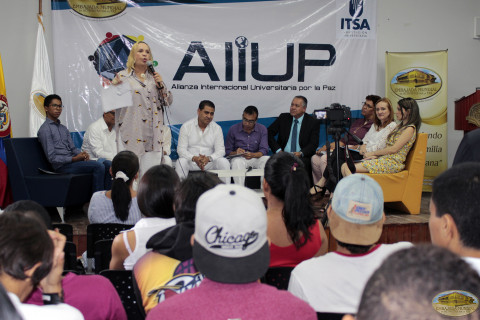
For the Rafael Núñez University Corporation, the delegate Katherine Pacheco, said that this house of studies works for the construction of a culture of peace through processes of training of integral students, who not only acquire technical knowledge, but are related properly to live in peace.
Approaches to post-conflict management
In order to collect proposals from the academy and its active role in the Colombian post-conflict, a debate was generated under the theme: "Academic proposals that promote peace in post-conflict management".
During this dialogue table the proposals that were included in a letter of commitment were presented, among them:
Edith Carmona, rector of the Universidad Antonio Nariño spoke about the importance of creating spaces for reinserted people, so that they have the opportunity to be academically trained.
Jessica Perea, student of International Logistics Management at ITSA, stressed that young people and teachers should be encouraged to carry out these field work, in addition, to change methodologies.
Salomón Consuegra, dean of the Faculty of Sciences and Education, Arts and Humanities of the University Institution ITSA proposed an intervention project that benefits the La Secreta community (village of Ciénaga) with drinking water.
Teófilo Rangel, a student of Systems Engineering at the Latin American University Corporation, said that it is necessary to implement Information and Communication Technologies (ICT) to promote values in society.
Katherine Pacheco added that the Rafael Núñez University Corporation is committed to carrying out an awareness process through the Mental Ecology campaign to build socio-cultural patterns that allow accepting the other as a person, regardless of their situation.
